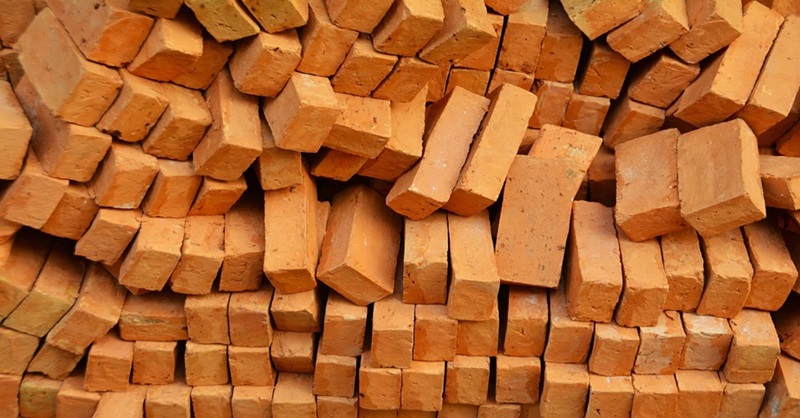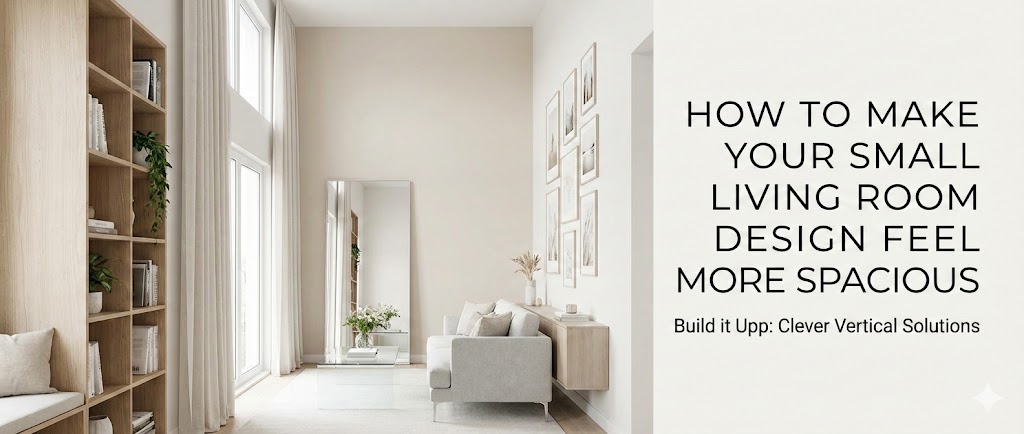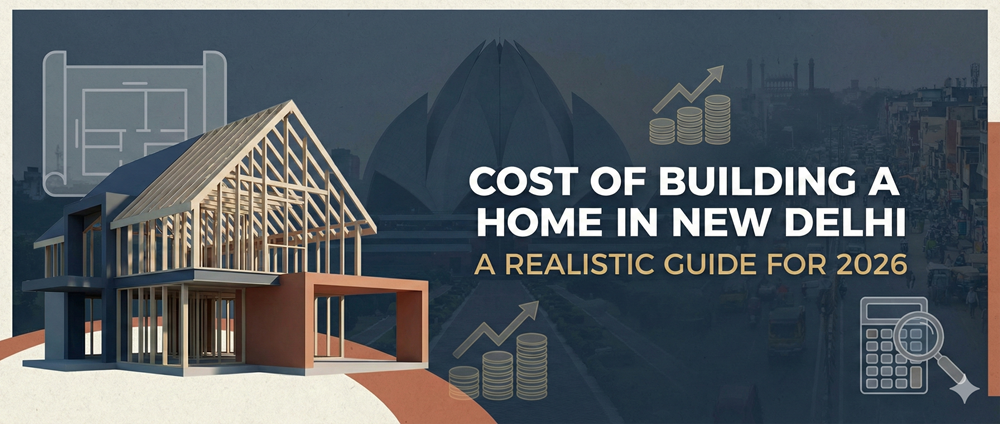Blogs

Types of Brick Walls & Their Uses in Construction
When it comes to construction, brick walls play a crucial role in providing strength, stability, and aesthetics to a structure. Whether it's a residential home, a commercial building, or an industrial setup, the type of brick wall used can significantly impact durability, insulation, and overall design. At Build It Upp, India’s No. 1 construction company, we understand the importance of choosing the right brick walls for your project. In this blog, we’ll explore the different types of brick walls, their uses, and why they matter in construction.
1. Load-Bearing Brick Walls Best for: Multi-story buildings, homes, and large structures Load-bearing brick walls are designed to support the weight of the structure above them. These walls transfer the load from the roof and upper floors down to the foundation. Traditionally, they were a primary choice for buildings before the invention of reinforced concrete structures.
Advantages:
- Provides structural strength
- Requires fewer steel reinforcements
- Can be cost-effective for low-rise buildings
Common Uses:
- Houses and residential buildings
- Schools and office spaces
- Villas and small commercial buildings
2. Non-Load Bearing Brick Walls (Partition Walls) Best for: Interior partitions, office cubicles, lightweight constructions Unlike load-bearing walls, non-load-bearing brick walls do not support any structural weight. They are mostly used as partitions to divide spaces within a building.
Advantages:
- Lightweight and easy to construct
- Can be demolished or altered as needed
- Provides privacy and noise reduction
Common Uses:
- Office partitions
- Room dividers in homes
- Interior walls in commercial spaces
3. Reinforced Brick Walls Best for: High-rise buildings, earthquake-prone areas, commercial structures Reinforced brick walls have steel rods or mesh embedded within them to increase their tensile strength. These walls are especially useful in regions with seismic activity, as they prevent cracking and improve stability.
Advantages:
- High resistance to earthquakes and strong winds
- Suitable for taller buildings
- More durable than traditional brick walls
Common Uses:
- Skyscrapers and high-rise apartments
- Bridges and large commercial buildings
- Public infrastructures like hospitals and schools
4. Cavity Brick Walls Best for: Climate control, preventing moisture, energy-efficient buildings Cavity brick walls consist of two layers of bricks with an air gap in between. This gap acts as insulation, helping in temperature control and moisture prevention.
Advantages:
- Excellent thermal insulation
- Prevents water seepage and dampness
- Increases energy efficiency of buildings
Common Uses:
- Houses in humid or rainy areas
- Energy-efficient commercial buildings
- Cold storage units and food processing plants
5. Brick Veneer Walls Best for: Aesthetic appeal, lightweight construction, modern designs Brick veneer walls are a single layer of bricks that serve as an outer decorative covering rather than a structural component. They provide the classic brick look without the added weight of solid brick walls.
Advantages: - Cost-effective alternative to full brick walls - Enhances curb appeal - Allows for modern design flexibility
Common Uses:
- Home facades and exterior walls
- Hotel and resort designs
- Interior decorative walls in cafes and restaurants
6. Parapet Brick Walls Best for: Rooftop safety, terrace protection, decorative elements Parapet walls are short walls constructed at the edges of terraces or balconies. They act as barriers to prevent falls and enhance the aesthetics of a building.
Advantages:
- Provides safety on rooftops
- Protects buildings from wind and weather damage
- Can be designed with decorative patterns
Common Uses:
- Apartment rooftops
- Commercial building terraces
- Balcony railings
7. Fire-Resistant Brick Walls Best for: Fire safety, industrial zones, commercial kitchens Fire-resistant brick walls are made from special fire-clay bricks that can withstand high temperatures. These walls are commonly used in areas where fire protection is crucial.
Advantages:
- High resistance to heat and flames
- Provides extra safety in fire-prone buildings
- Reduces spread of fire in case of accidents
Common Uses:
- Factories and industrial plants
- Fire exits and stairwells
- Commercial kitchens and bakeries
Choosing the Right Brick Wall for Your Construction :- Each type of brick wall has its own set of benefits. When choosing the right one for your project, consider factors such as:
- The load the wall will bear
- Climate conditions in your region
- The purpose of the wall (structural or decorative)
- Cost and material availability
At Build It Upp, we specialize in high-quality construction using the best materials. Whether you need residential construction, commercial buildings, or industrial setups, we have the expertise to deliver top-notch results.
Why Choose Build It Upp?
- No. 1 Construction Company in India
- Expert Builders & Engineers
- End-to-End Construction Services
- Sustainable & Eco-Friendly Building Practices
- Contact Us Today! - Visit: BuildItUpp.com Get in touch with us to build strong, durable, and efficient brick walls that last a lifetime!





